- Home
- Keith Douglass
Nuke Zone c-11 Page 5
Nuke Zone c-11 Read online
Page 5
“His name is Bradley Tiltfelt,” the admiral said, relieved to be back on less treacherous ground than the emotional health of a family. “I don’t know much about himhe’s a political appointee. They all are,” he added with some degree of bitterness. It was one of the trends that had bothered him most, especially seeing it in his own service. Appointing those who were politically correct and in favor after years of D.C. tours instead of true, operationally hardened warriors with extensive time at sea. Luckily, his nephew was an exception to that trend.
“Well.”
Tombstone seemed at a loss for words. Suddenly, without warning, he thrust out his hand at the man standing across the desk from him. “I’ll see you when I get back.”
The CNO surprised himself by walking around the desk, taking the hand, and drawing his nephew in toward him for a brief, hard embrace. “Take care of yourself, Stoney.”
1000 Local
ACN News Bureau
Istanbul, Turkey
Bleating goats competed with the sharp staccato of automobile horns to drown out the continual underlying roar of crowds and machinery that was a constant background in Istanbul. The ancient city crowded down to the water, fronting on the Bosphorus Strait. From the earliest times, it had provided a demarcation between Eastern and Western worlds, cosmopolitan and tolerant of almost every culture and religion.
Pamela Drake, combat reporter for the prestigious ACN news network, studied the crowds flowing and eddying around her. Usually, she could pick up vital country details from her studies of the crowds, details that lent her reports an air of authenticity that few others could rival. It was almost a sixth sense, one anchor had once commented, the ability to be on scene at the most godforsaken and remote areas of the world just as all hell was breaking loose. It was also the reason her salary had edged up steadily toward the seven-figure mark, making her the highest-paid foreign correspondent at any network.
Istanbul was hardly a backwater, however. As the world grew increasingly smaller, major metropolitan centers started to look more and more alike, she thought, studying the cars streaming down streets originally built for goat herds. The past slowly faded out, replaced by electrons and tarmac and concrete. Yet for all the modern progress it had made, Istanbul had managed to retain the flavor of an exotic, foreign port.
The crowds today were quiet, and felt puzzled and frightened. She couldn’t quantify it exactlyit was less a data-point than a personal observation born of long experience in combat theaters. And Lord knows she had experiencefrom the Arctic to the South China Sea and all points in between, she’d chased the vagaries of geopolitical eruptions across the globe.
At least here she wouldn’t have to rely on portable satellite up-links with their mysterious grumblings and dependence on atmospheric conditions.
Istanbul boasted a fully staffed ACN office, complete with dedicated satellite dishes bristling across the roof and enough telephone line to satisfy any reporter. Sometimes too much technology was more of a pain in the ass than a help. The main bureau in Memphis tended to clamp down during breaking stories, trying to micromanage the stories pouring out of a war.
If they could just get the politics out of the way, the interminable ACN maneuverings for status and position, she thought wearily, she might even be able to figure out what the hell was going on.
She strode into the office, chin high and carriage erect, quickly scanning the crowded room for the man she wanted. There he was, encased in his glass cubicle at the back, talking on the telephone while waving a rancid Turkish cigarette in the air. She grimaced, wishing the health-conscious mandates of the ACN Stateside offices had made it out this far. Still, his disgusting personal habits were of less concern than his approach to the current crisis.
Without asking permission, she strode to the back of the room and shoved open his door. “Mike,” she said warmly, “how good to see you again.”
The man waved one hand at her, and motioned toward a seat. He finished off a conversation in clipped, guttural Turkish, then replaced the receiver and turned to greet her. “Pamela, I wondered how long it would be till you turned up.”
He made a vague gesture toward the rest of the newsroom. “We’ve been taking bets on it, as a matter of fact. If you’d waited another two hours, I’d be eighty bucks richer.”
Pamela laughed. “It’s your own fault, Mike. You should have known better after all the times we’ve worked together.”
And he should have, she thought, studying him carefully. If not from personal experience, at least from her legendary reputation within ACN.
Anyone who bet on Pamela Drake being late to the fight was sorely misguided.
The years had been harder on Mike than they had on her, she was pleased to note. Deep furrows creased his forehead, and the curly dark hair was streaked with gray in an oddly puzzling pattern: random patches of white frost in between stretches of glossy dark hair, giving him a harlequin look.
It would be a mistake to let that mislead you, though, she thought.
His eyes were the same sharp, peculiar shade of light brown, piercing and knowing. He smiled, revealing perfectly formed teeth slightly stained with nicotine.
The ACN Istanbul office, while fully staffed, was a small operation.
There were five reporters, a handful of multitalented technicians, and Mike. He was double-hatted as both the bureau chief and the producer, overseeing all aspects of the operations in the area.
“How can we help you?” he queried, holding out his hand. “Always delighted to have you grace us with your presence, of course.”
She slipped into the chair, relieved that at least initially there wouldn’t be any wearying battles over who she worked foror who worked for her. “I got here as fast as I could. What do you know about this nuclear detonation?”
His face looked somber. “None of us knows very much at all. I swear to God, Pamela, it’s the damnedest thing. There’s been no real hint of a change in Turkish position vis-a-vis the United States. No underground rumblings, no petty sniping from our sources, nothing. Not even any unexpected military movements or ‘war games,’ like there usually are.”
He spread his hands and shrugged. “Quite frankly, we’re at a loss.”
“What’s the official reaction?” Pamela asked.
“Complete denial. In fact, if I didn’t know what the U.S. military was reporting, I’d say the Turks are as puzzled by the whole thing as we are. Worried too. We’re too close to Chernobyl for comfort. These people know what effect a nuclear problem can have on their country. We talked to the Minister of Health earlier today, and he was damned near in a panic.”
“Strange.”
More than strange, Pamela thought, downright inexplicable.
Her experience, like Mike’s, had been that every unexpected conflict was not really that unexpected. There were always murmurings, traces of political unrest, the first few harbingers of war floating around the countryside. If you knew what you were doing, had enough sources in enough countries, you could keep track of them. Keep track of them, and beat every other reporter to the story. It was one of her specialties.
“More than strange,” Mike Packmeyer said. He paused, making sure he had her full attention. “More than strange,” he repeated slowly. “There’s something going on here, Pamela, and I don’t mind telling you it scares the hell out of me. Something’s very wrong.”
Pamela stood abruptly. “I’ll need the standard support package, Mike,” she began. “Satellite time, up-link resources, and somebody to get my material out of here. With the way this thing is breaking, I don’t have time to dick around. Let me be blunt about itare we on the same team or not?”
She fixed him with a cold look.
Packmeyer shook his head. “Always the same Pamela. Listen, I live herehave for the last ten years. What I want right now is to figure out what the hell is going on.”
He paused and shot her a significant look.
“You’re
the person to do it, Pamela. You’ll have every bit of support that you need and more.”
Pamela nodded, satisfied. “I appreciate that, Mike.”
And indeed she did. Now she could concentrate on the one thing that drew her on professionally, a source of endless fascination and intrigue for herthe real story.
3
Tuesday, 4 September
0600 Local
USS Jefferson
The carrier was little more than a gray smudge on the horizon as seen from the cockpit of the approaching F-14. Tombstone squinted, craning his head around to see forward from the backseat of the Tomcat. Dear Lord, he hated riding backseatbut there was no way around it this time. As sharp as he still felt, he wasn’t current in the F-14 cockpit. It was hard to stay in specs flying a desk, but most of the time he managed it. It was only during the last two weeks at D.C., following his assignment at ALASKCOM, that he’d managed to get out of proficiency. So here he was, an aviator en route to fleet command, riding in the backseat. And from what he’d been briefed on the situation, it wasn’t likely he was going to get any stick time in the near future.
Maybe after this was resolved he could steal a few hours in the flight schedule. Just a few. Just long enough to feel a throbbing engine strapped on his ass, to satisfy the need for speed. It was why he’d joined the Navy some twenty-five years ago, and only an overriding sense of duty to his country and the off chance that an opportunity just such as this would arise had kept him in the service.
Sitting in the backseat with his hand itching to take the controls was like kissing your sister. Or worse, being interrupted on a couch by an irate father just as you were about to score. He longed to reach out and take control, to feel the stick in his hand and the rudder controls under his feet, to feel how the sheer raw power of the aircraft changed in response to his decisions, his control.
Being Sixth Fleet ought to be enough for any officer. It wasn’t.
“On final now,” the pilot in the front seat said. “I’ll be a little bit busy for the next couple of minutes.”
And there it was again, that classic sense of understated irony that underlay the bravado of a fighter pilot. Busy was hardly accuratetotally focused and concentrating on the pitching carrier in the sea was more like it. Studies had shown that a pilot’s pulse during a carrier-landing evolution could easily reach 160 during final approach.
“I’m all right back here, son,” Tombstone said. “Like to see a three-wire trap out of you, though,” he continued, referring to the model method of getting aboard an airfield moving at thirty knots. Two short clicks acknowledged his transmission.
The carrier was resolving itself into its shape, the familiar island jutting above the flight deck, the Fresnel lens now a pinprick of light off to his left. If his pilot stayed on flight path, the Fresnel would continue to glow green. Too high or too low, and it would look red to the incoming aircraft. As a final sanity check, a Landing Signals OfficerLSOwas stationed on a small platform that jutted out from the side of the carrier just below the level of the flight deck. The LSO would be an experienced F-14 pilot. As the approaching pilot “called the ball,” the LSO would take over direction of his approach, coaching him into the proper lineup, neither too far right nor too far left, and gently wheedling him into the proper attitude in relationship to the deck.
If he or she were dissatisfied with the pilot’s approach, the LSO could call a wave-offan order to the pilot to cease the approach, maintain airspeed, and circle around the aft end of the carrier for another try. It wasn’t a permanent black mark on a perfect pilot’s recordeven the most experienced aviators sometimes got waved off by either the LSO or the Air Boss for a variety of reasons. Gear or personnel fouling the flight deckinside the yellow lines that delineated the actual airstrip, an unacceptable degree of pitch on the ship, or simply because an experienced aviator was having an off day and was a bit off glide path. It happened. You learned from it and went on from there. Too many wave-offs, though, might warrant a close look by a FNEABA Fleet Naval Evaluation Aviation Board. The FNEAB could recommend that a pilot be stripped of his wings if his airmanship weren’t up to snuff.
They were a mile off now and descending rapidly. The air was increasingly turbulent as the massive ship plowed its way not only through sea but air as well, creating eddies and ripples that disturbed the atmosphere that buffeted the jet. The Tomcat lurched and bobbled, found its glide path, and settled firmly into it. Tombstone kept up the scan by reflex, glancing from the Fresnel lens to the needlesthe cross-hairs on the panel that indicated his position relative to glide pathand the airspeed indicator. So far, the kid was doing a good job.
Kid, hell. Tombstone snorted at his own description. The “kid” was probably thirty-five years old, a commander, and in command of one of the squadrons on board Jefferson. A two-star passenger rated no less.
The landing was, as always, a violent, controlled crash. Tombstone could feel the tailhook grab hold of the arresting wirethe three wire, if he wasn’t mistaken. It spun out eighty feet down the deck, dragging the Tomcat to a screeching halt. The nose-wheel slammed down, jarring both pilot and passenger.
As soon as the aircraft touched the deck, the pilot slammed the throttles forward to full military power. If he missed the wire, or if the Tomcat did a kiddy trap where its tailhook skipped over the wire or otherwise failed to be restrained by it, the Tomcat engines would be turning sufficiently to get them airborne again off the forward end of the ship. Not a pleasant maneuverit was called a bolter, and was far more embarrassing than a wave-off. It meant you were close, too close, but just couldn’t manage that final bit of effort required of a Naval aviator to get his aircraft on deck.
Finally, the yellow-shirts jumped out in front of the aircraft, and made the looping right-arm-under-left motion that indicated that the pilot was to raise his tailhook. The pilot eased back on the power, disengaged from the arresting wire, and taxied forward in response to hand signals from the yellow-shirt directing them to a station near the island.
“Good trap,” Tombstone said as he unbuckled his ejection harness.
“Thank you, Admiral.”
The pilot’s breath was still coming in hard gasps as he let the adrenaline bleed out of his system. “Good day for flying.”
“Any day’s a good day for flying, Commander. You’ll understand that once you get parked at a desk.”
The commander looked startled, as though the prospect of getting promoted to admiral and never getting to fly again was a new thought.
“Don’t know that I’d like that much, Admiral,” he said neutrally. He gestured out toward the flight deck, toward the brown-shirts teeming around the aircraft and the green-shirted technicians darting from problem to problem. “This is what it’s about, I mean. No disrespect intended.”
Tombstone clambered out of the cockpit, stopping on the middle step to turn and look back at the pilot. “No offense taken, Commander. You enjoy it while you can.”
He eased on down the side of the aircraft, feeling stiff leg muscles slowly stretch out.
On the deck, a khaki-clad aviator sporting captain’s eagles saluted smartly. “Welcome aboard, Admiral Magruder. Admiral Wayne is tied up in TFCC right now, but he asked me to be on deck to greet you. I’m Captain Leary, the Chief of Staff. This way, sir.”
He motioned toward the door into the island.
“I think I can still find my way around,” Tombstone said gruffly. “It hasn’t been that long.”
“Of course not, Admiral.”
Three decks later, Tombstone stepped out into the flag passageway, the blue linoleum demarcating the admiral’s quarters and staff areas from the rest of the ship. Each end was hung with fireproof blue plastic curtains.
Tombstone dismissed the Chief of Staff, and headed for TFCC. He walked through the conference room, then on into the space itself. So familiarhow long had it been?
Less than two months, he realized.
&
nbsp; “Welcome aboard, Admiral.”
Admiral Edward Everett “Batman” Wayne extended his hand. “Good to see you again, sir.”
“And you as well, Batman,” Tombstone said easily. He gestured toward the large-screen display. “What’s up?”
Batman shrugged. “That’s the question of the day, isn’t it? The only thing flying out there is hot and heavy messages between the embassy and the State Department. Everything’s grounded, even commercial flights. And not so much as a peep out of our liaison in Turkey. The Air Force is even laying low at Incirclik.”
Tombstone frowned. “What ROE are you operating under?” he asked, referring to the Rules of Engagement that governed peacetime and armed conflict. “Any special modifications?”
Batman shook his head. “If it were up to me, I’d have a squadron airborne and inbound on Turkey right now, max load of bombs,” he said bluntly. “You know that. But according to my ordershere, let me show you,” he said, handing Tombstone the message. “I’m to maintain a neutral but forceful posture off the coast of Turkey. Would you like to explain that to me? A neutral but forceful posture?”
Tombstone took the message and read the details of the Rules of Engagement. It was as Batman had said, the weaseling sort of message that provided little guidance and less exculpation for the commander in the field. In essence, Batman was ordered to keep anything else from happening, but was to maintain a reactive posture only, except for matters that affected the safety of the ships under his command. “Typical Washington bullshit,” Tombstone concluded, and handed the message back.
“What do you want to do first, Admiral?” Batman asked. “I can have a full-scale briefing ready in about half an hour if you wish.”
“The first thing I want is for you to call me Stoney,” Admiral Magruder said. “Shit, Batman, I keep ending up on your boatand I’m sure as hell sick of Ruffles and Flourishes.”
“As the Stoney One desires, oh, Flight Leader,” Batman said.

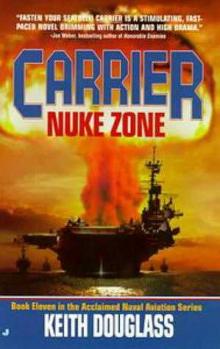 Nuke Zone c-11
Nuke Zone c-11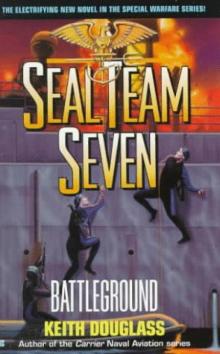 Seal Team Seven 6 - Battleground
Seal Team Seven 6 - Battleground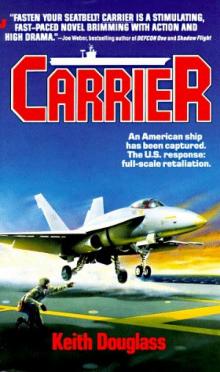 Carrier c-1
Carrier c-1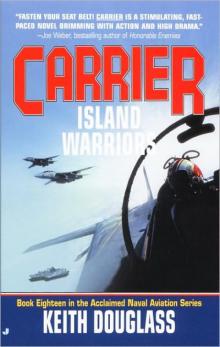 Island Warriors c-18
Island Warriors c-18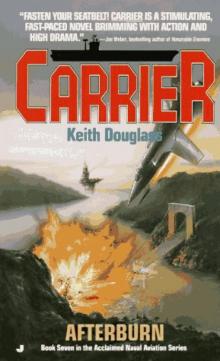 Afterburn c-7
Afterburn c-7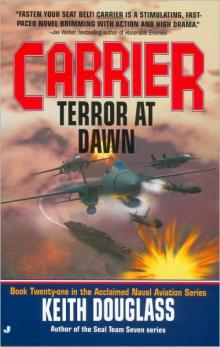 Terror At Dawn c-21
Terror At Dawn c-21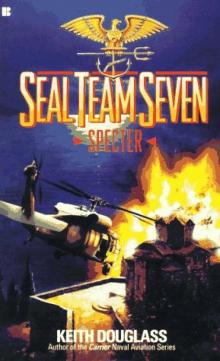 Specter sts-2
Specter sts-2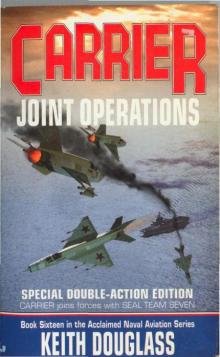 Joint Operations c-16
Joint Operations c-16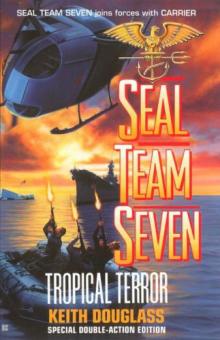 Tropical Terror sts-12
Tropical Terror sts-12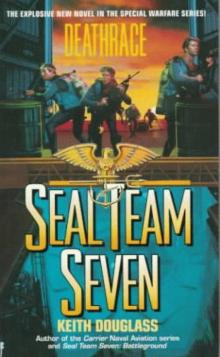 Seal Team Seven 7 - Deathrace
Seal Team Seven 7 - Deathrace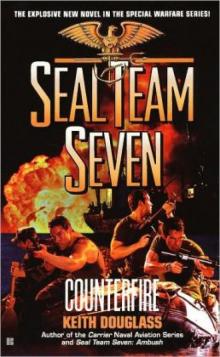 Counterfire sts-16
Counterfire sts-16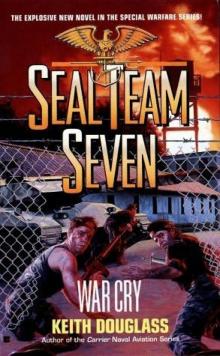 War Cry sts-9
War Cry sts-9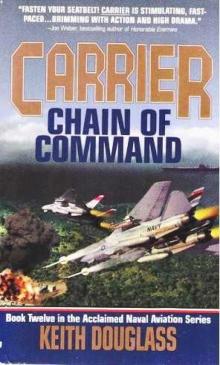 Chain of Command c-12
Chain of Command c-12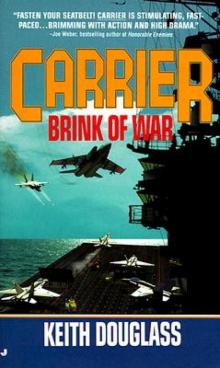 Brink of War c-13
Brink of War c-13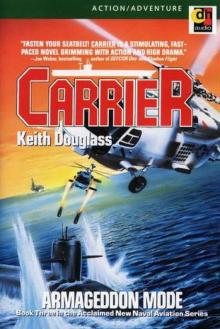 Armageddon Mode c-3
Armageddon Mode c-3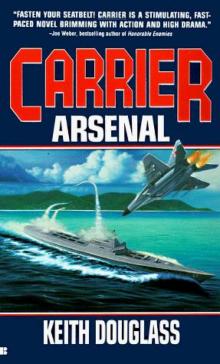 Arsenal c-10
Arsenal c-10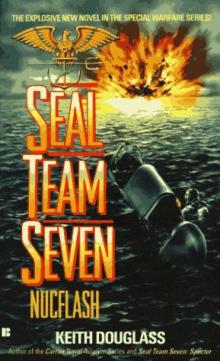 Nucflash sts-3
Nucflash sts-3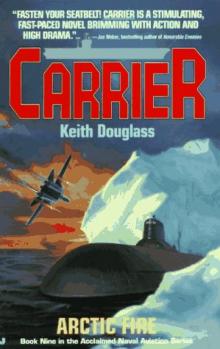 Arctic Fire c-9
Arctic Fire c-9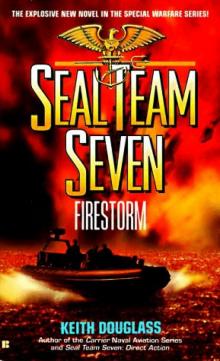 Firestorm sts-5
Firestorm sts-5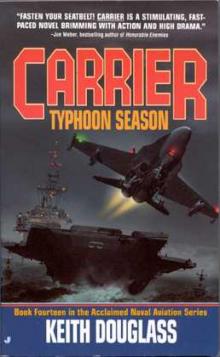 Typhoon Season c-14
Typhoon Season c-14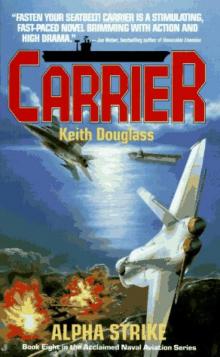 Alpha Strike c-8
Alpha Strike c-8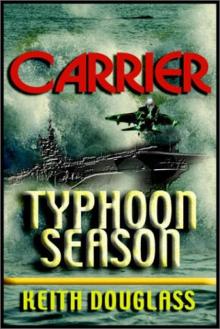 Carrier 14 - TYPHOON SEASON
Carrier 14 - TYPHOON SEASON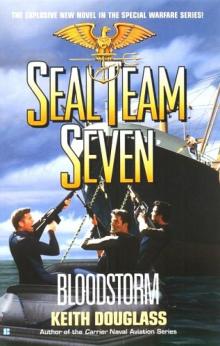 Bloodstorm sts-13
Bloodstorm sts-13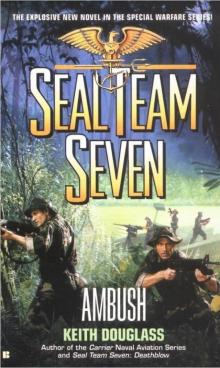 Ambush sts-15
Ambush sts-15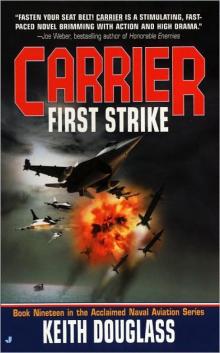 First Strike c-19
First Strike c-19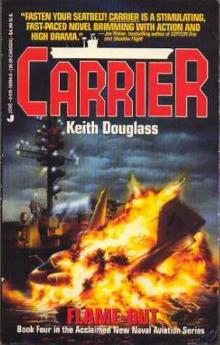 Flame Out c-4
Flame Out c-4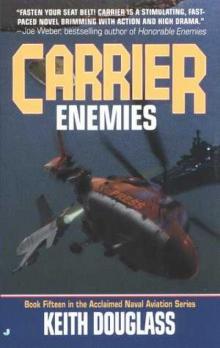 Enemies c-15
Enemies c-15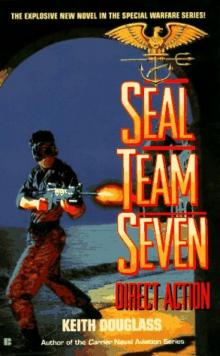 Seal Team Seven 04 - Direct Action
Seal Team Seven 04 - Direct Action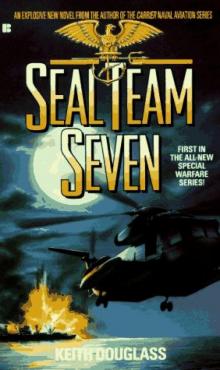 Seal Team Seven 01 - Seal Team Seven
Seal Team Seven 01 - Seal Team Seven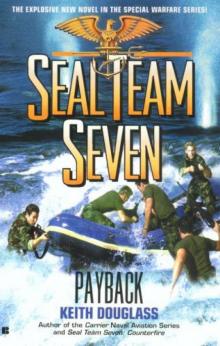 Payback sts-17
Payback sts-17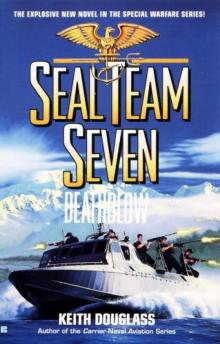 Death Blow sts-14
Death Blow sts-14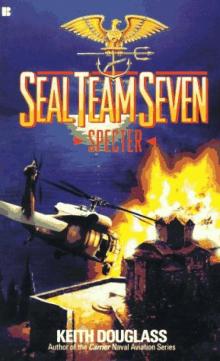 Seal Team Seven 02 - Spector
Seal Team Seven 02 - Spector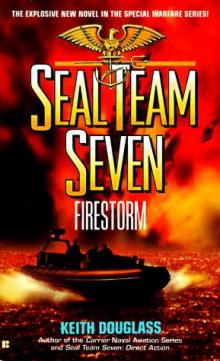 Seal Team Seven 5 - Firestorm
Seal Team Seven 5 - Firestorm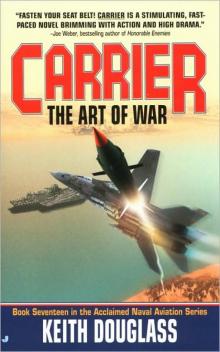 The Art of War c-17
The Art of War c-17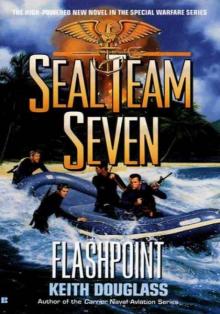 Flashpoint sts-11
Flashpoint sts-11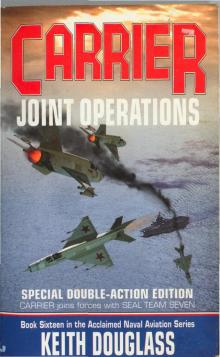 Carrier - Joint Operation Book 16
Carrier - Joint Operation Book 16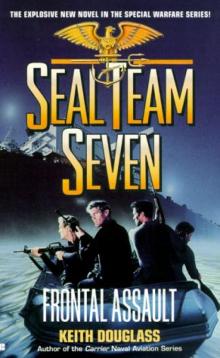 Frontal Assault sts-10
Frontal Assault sts-10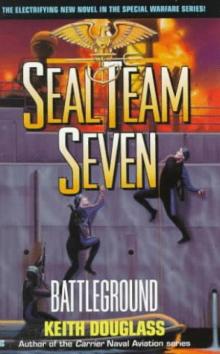 Battleground sts-6
Battleground sts-6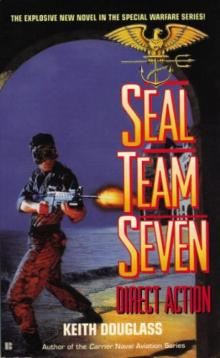 Direct Action sts-4
Direct Action sts-4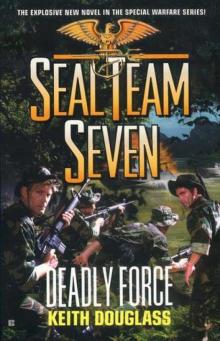 Deadly Force sts-18
Deadly Force sts-18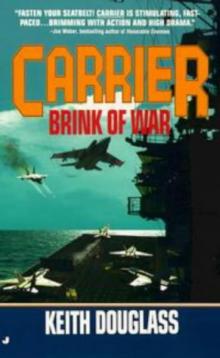 Carrier 13 - Brink of War
Carrier 13 - Brink of War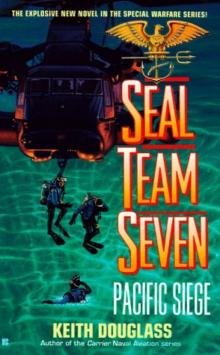 Pacific Siege sts-8
Pacific Siege sts-8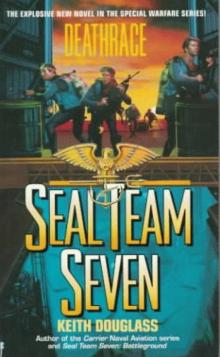 Deathrace sts-7
Deathrace sts-7